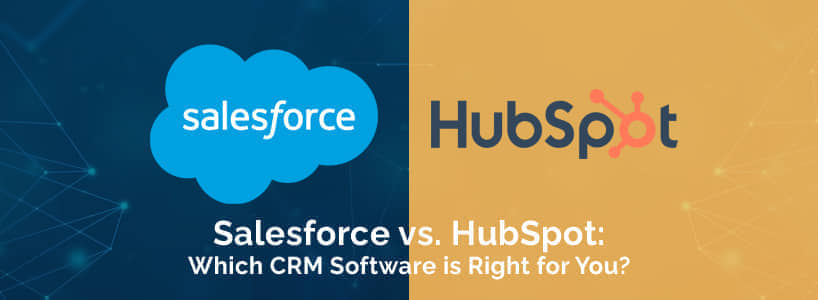Choosing the right Customer Relationship Management (CRM) software can significantly impact your business's success. Salesforce and HubSpot are two of the most popular options on the market, each with its unique strengths and weaknesses. To help you make an informed decision, let's dive into a comparison of these two leading CRM platforms.
Salesforce: A Robust Platform for Enterprises
Salesforce has been a dominant force in the CRM market for years. It offers a comprehensive suite of features, making it suitable for large enterprises with complex sales processes. Key features of Salesforce include:
- Customization: Salesforce provides extensive customization options, allowing businesses to tailor the platform to their specific needs.
- Integration: It integrates seamlessly with various third-party applications, such as marketing automation tools, email platforms, and analytics software.
- Scalability: Salesforce can handle large volumes of data and scale as your business grows.
- AppExchange: The AppExchange offers a vast marketplace of apps and integrations, expanding Salesforce's capabilities.
HubSpot: A User-Friendly Option for Small Businesses
HubSpot is a popular choice for small and medium-sized businesses. It offers a more intuitive interface and a focus on inbound marketing and sales. Key features of HubSpot include:
- Ease of Use: HubSpot's user-friendly interface makes it easy for teams to learn and adopt.
- Inbound Marketing Integration: It offers built-in tools for content marketing, SEO, and social media, making it a great option for businesses focused on inbound marketing.
- Sales Automation: HubSpot provides features like email templates, meeting scheduling, and deal tracking to streamline sales processes.
- Customer Service Hub: In addition to sales and marketing, HubSpot offers a customer service hub with features like ticketing and live chat.
Which CRM is Right for You?
The best CRM Software for your business depends on several factors, including:
- Business size: Salesforce is better suited for larger enterprises, while HubSpot is a good option for smaller businesses.
- Sales process complexity: If your sales process is complex, Salesforce's customization options may be more beneficial.
- Marketing focus: If inbound marketing is a priority, HubSpot's integrated tools can be a great asset.
- Budget: Salesforce generally has a higher price tag than HubSpot, so consider your budget when making a decision.
By carefully considering these factors, you can choose the CRM platform that best aligns with your business goals and provides the tools and features you need to succeed.
